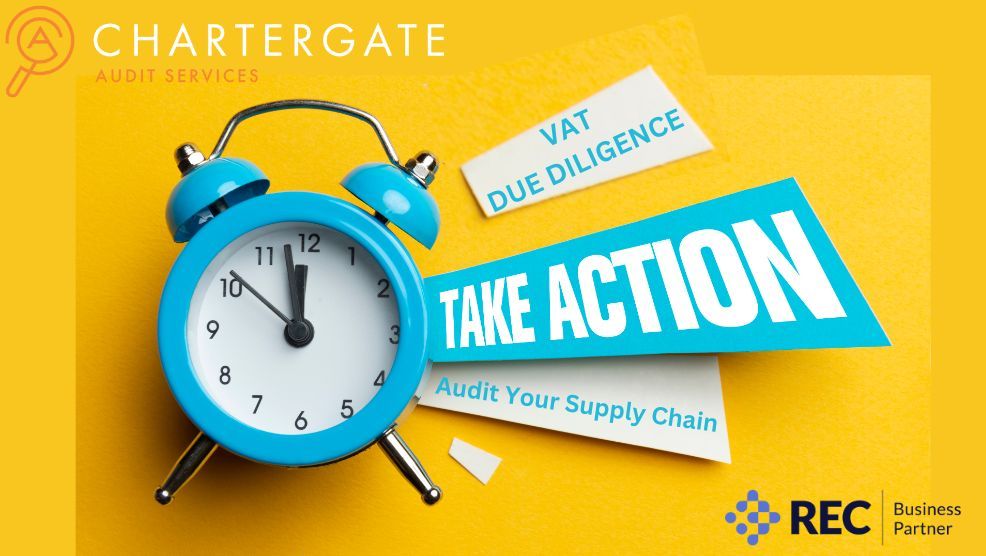A Roadmap to Compliance for Agencies
News from our business partners

This is a guest blog by Chartergates Audit Services
Engaging with Umbrella Companies: Part Three – VAT Due Diligence
If VAT is recovered by an agency who knew or should have known that their supplier’s transactions were connected with the fraudulent evasion of VAT, then they lose the right to recover the VAT. This is known as the ‘Kittel Principle’.
Despite, the burden of proof under the Kittel Principle lying with HMRC, the Kittel Principle represents a significant and present compliance risk for agencies.
VAT Due Diligence: Agency Risk
Due to the potential value of invoices in the labour supply sector, it is not difficult to imagine an agency’s potential VAT liability (calculated over a four-year period) if denied a credit for input tax (which, for the sake of clarity, could easily be in the millions). Assuming HMRC can show that there has been a loss of VAT and that it was caused by fraudulent evasion, then the remaining question is whether the agency, having undertaken a level of due diligence that a reasonable trader would have carried out, should have known that the VAT loss resulted from fraudulent evasion. An agency should therefore ensure that appropriate attention is given to its due diligence processes to mitigate the risks of being denied a credit for input tax!
Roadmap to Compliance
Our roadmap to compliance when considering VAT due diligence includes the following:
-
Do not treat due diligence as a box-ticking exercise: When collecting information from suppliers, all the information collected must be properly considered. Where the responses provided show any red flags, you must act and be able to evidence that the red flags were properly investigated and that you were satisfied that they were not fraud indicators.
-
The due diligence checks must be robust: Although the relevant question is whether you knew or should have known of the connection with fraud (and not whether you have conducted due diligence), only a detailed due diligence process could identify potential red flags and provide an audit trail should you need to rely on it.
-
Due diligence is an ongoing exercise: Undertaking a one-off due diligence exercise at the point of contracting with an umbrella company does not necessarily mitigate against the risks of the Kittel Principle where the fraudulent evasion occurred several years following the initial check. Due Diligence must be undertaken on a continuous basis including regular thorough due diligence checks including a VAT number check carried out quarterly as a minimum.
CALL TO ACTION:
Monitor and Safeguard your Compliance by VAT RISC® Accrediting the Supply Chain
At Chartergate Audit Services, we have designed a unique and bespoke VAT compliance check. Our check is based on our VAT due diligence process and measures that have successfully navigated HMRC enquiries and tribunals. The VAT RISC® Accreditation is the only assessment of its kind to shield you from the repercussions of VAT fraud in your supply chain
Share this article

